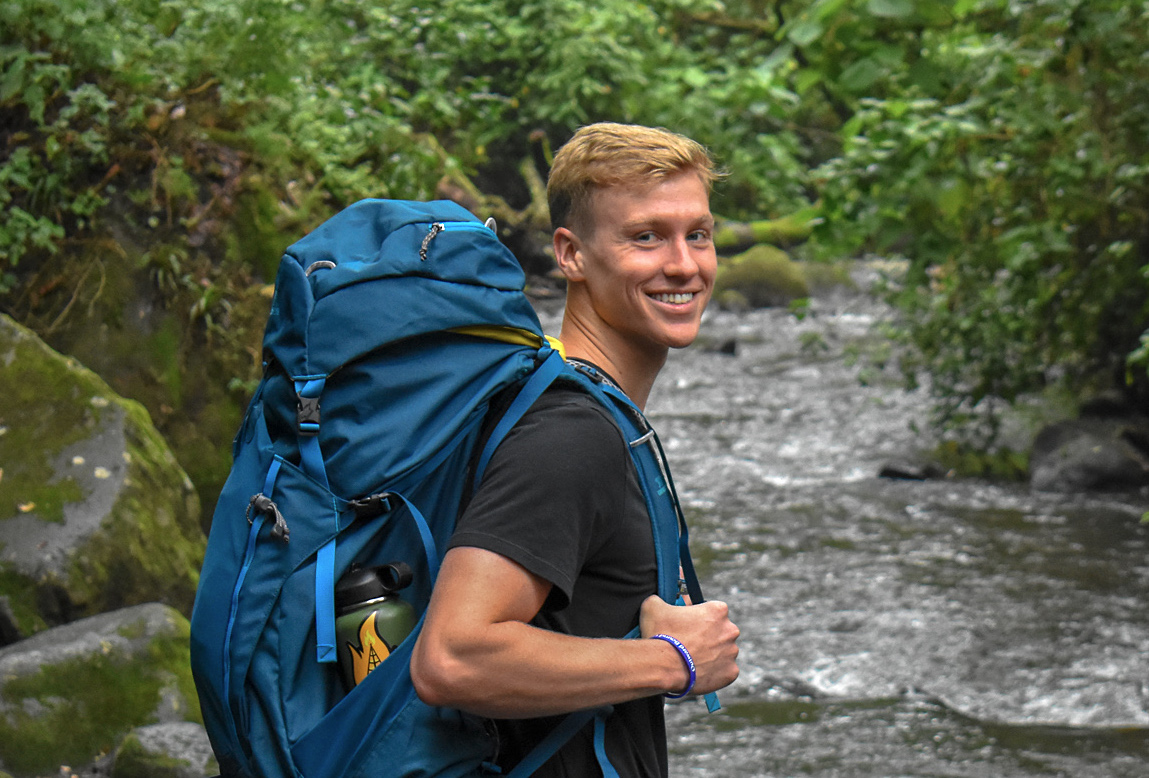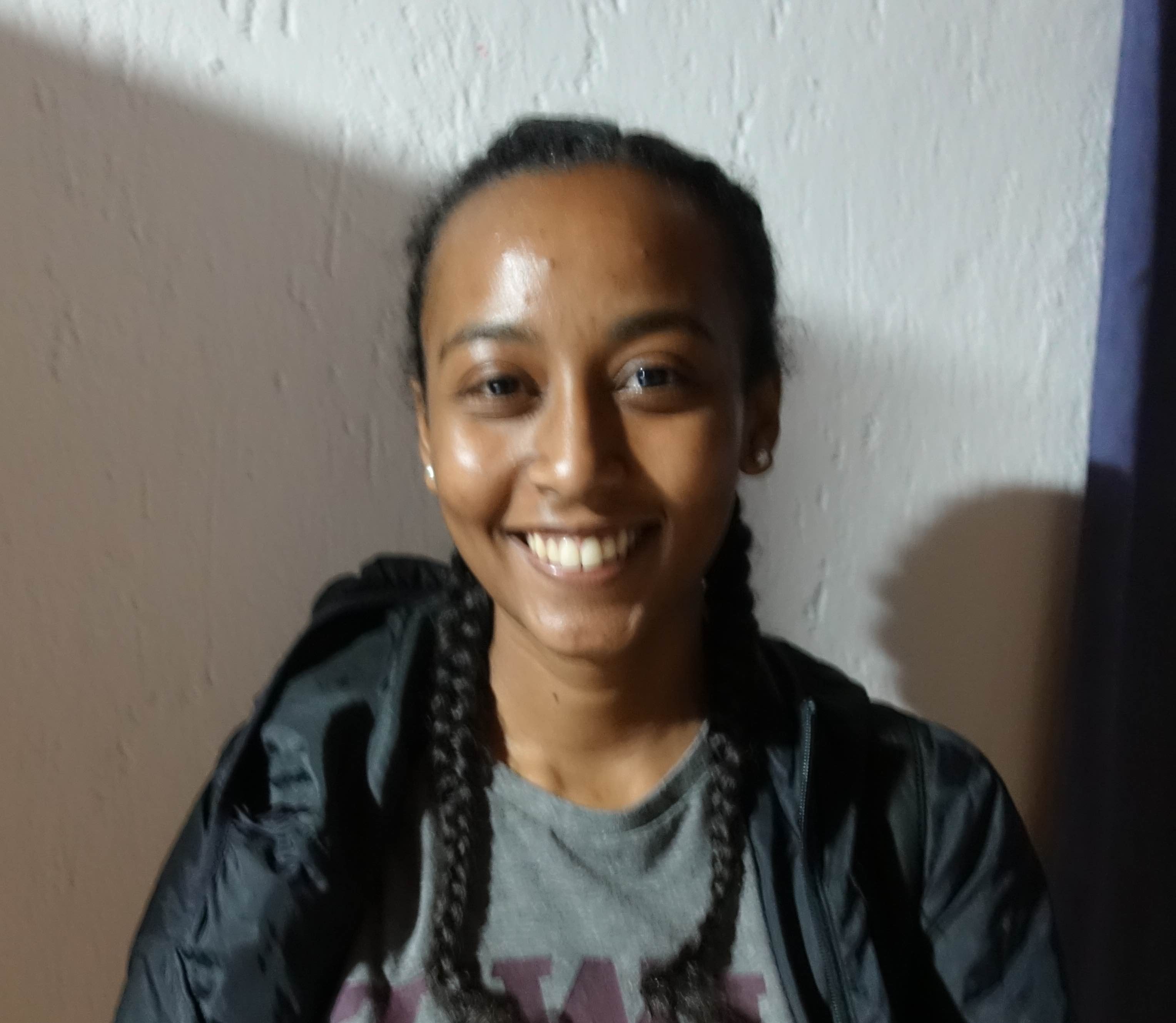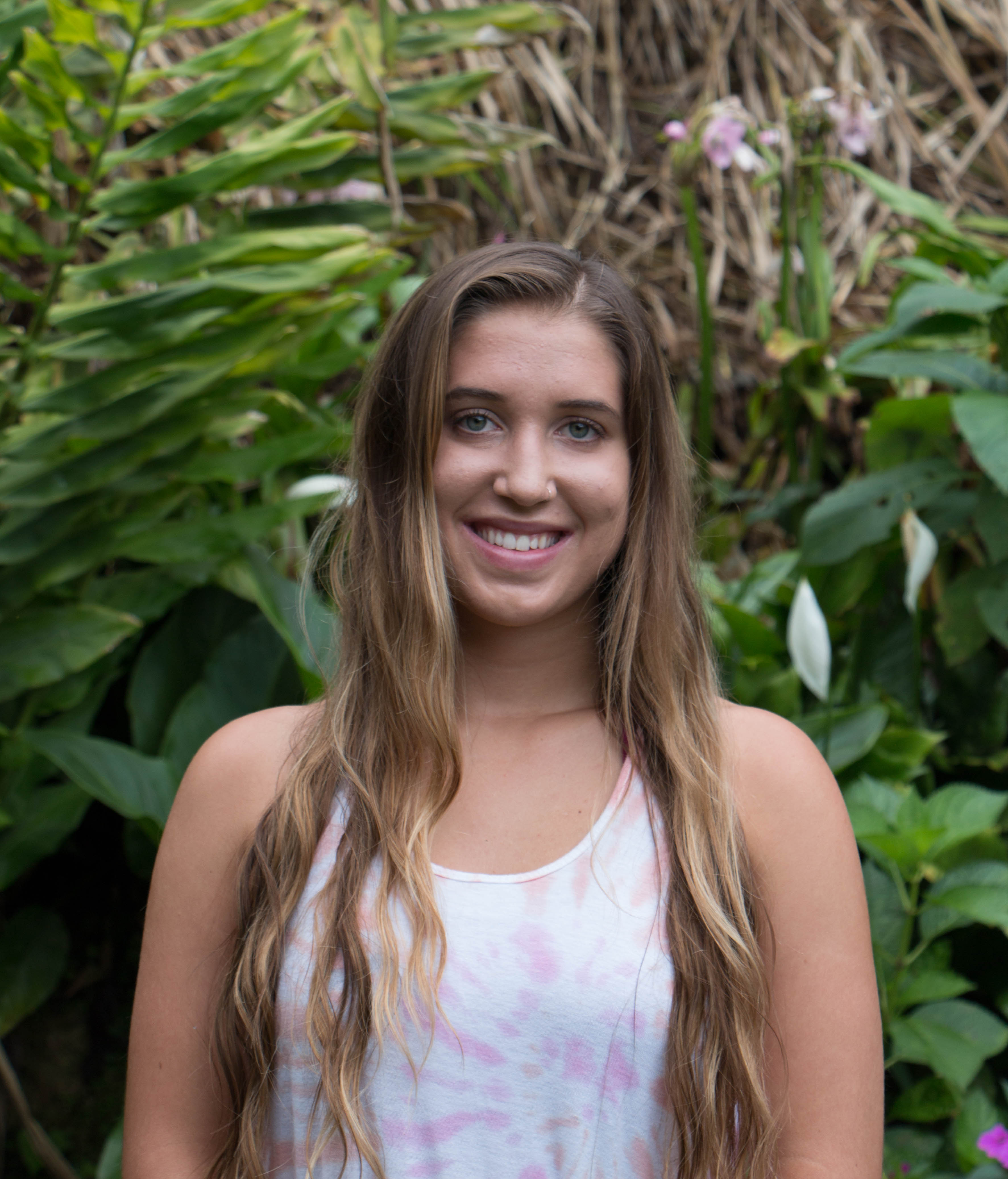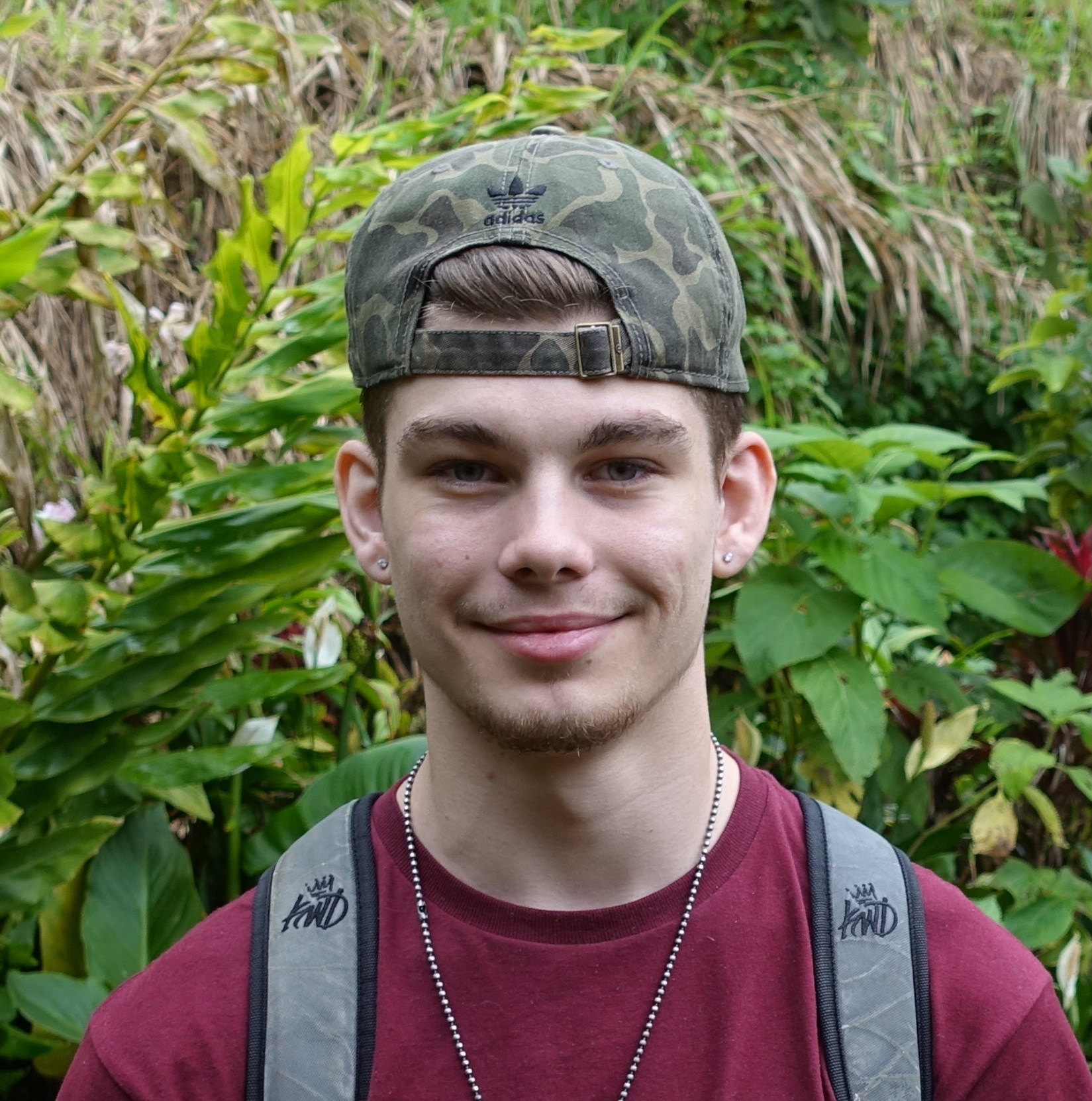Why OBCR?
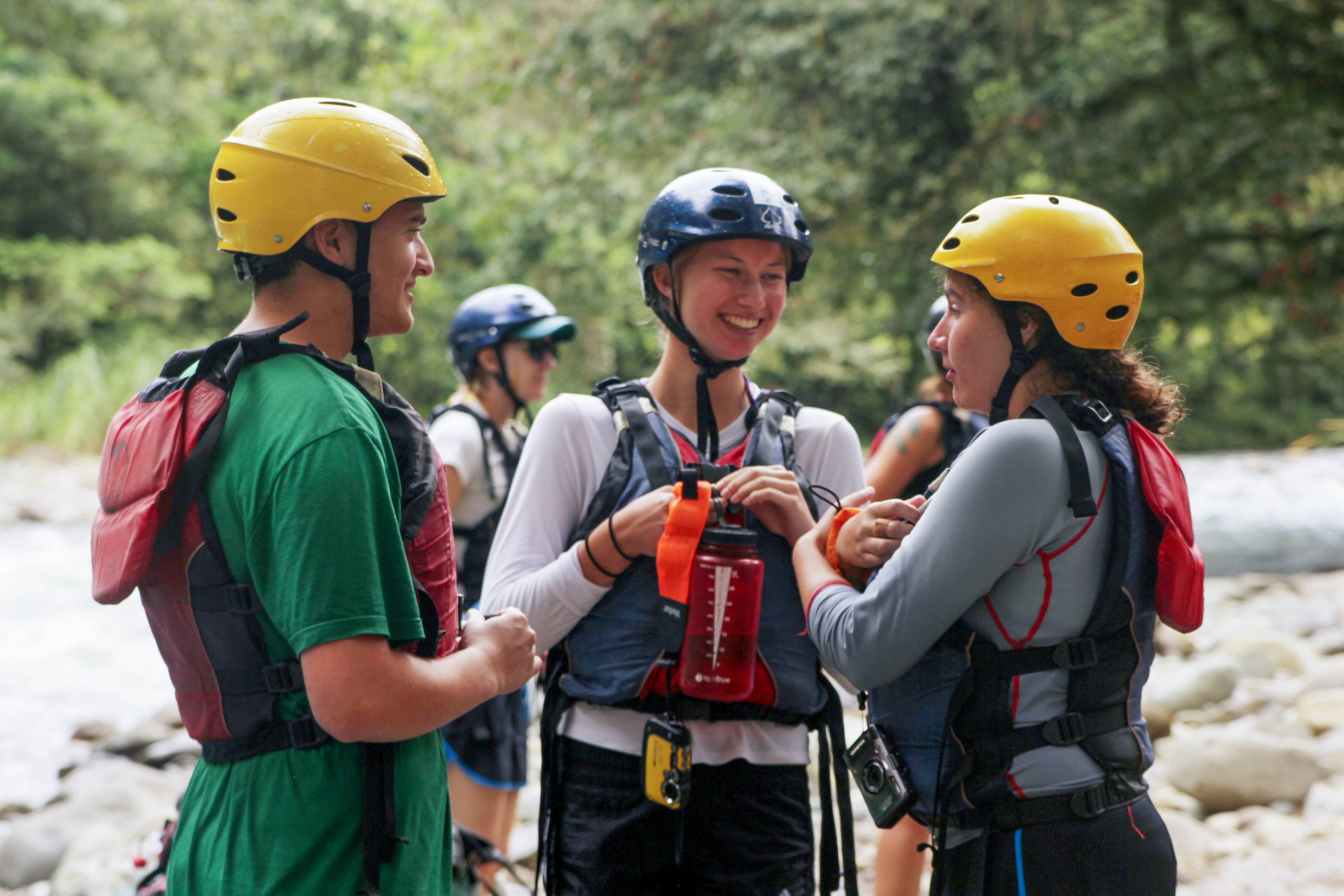
“We are all better than we know. If only we can be brought to realise this, we may never again be prepared to settle for anything else.”
– Kurt Hahn, original founder Outward Bound
Our Mission
Outward Bound Costa Rica is committed to creating a safe environment and to promoting environmental, cultural and personal growth through our Core Values & Operating Principles.
Our Core Values
These five core principles are central to every Outward Bound Costa Rica course. They allow us to provide authentic adventures, with participants being challenged to step outside of their comfort zone:
![]()
ADVENTURE & CHALLENGE
We believe that challenge and providing adventure within the context of our environment are fundamental to personal growth and satisfaction. During our adventurous outdoor activities, participants overcome physical and mental challenges and are encouraged to take responsibility for themselves and their team, developing life-skills along the way.
![]()
LEARNING THROUGH EXPERIENCE
We believe that people grow and learn best by doing. Experiential learning connects us to our natural world and is an integral part of personal development. Our expeditions are designed to increase curiosity, experimentation, and participation in learning situations, helping participants develop their leadership style and teambuilding skills.
![]()
COMPASSION & SERVICE
We believe that service to others is exercised through compassion, action, and words, and that it should be a part of the daily life of all people. As part of our group development, participants build interpersonal skills and learn to exercise tolerance and cooperation in order to create a sense of community in their team, mirroring the outside world.
![]()
PERSONAL & SOCIAL RESPONSIBILITY
We believe that social responsibility begins with the self and extends to our family, work, community, and world. During our programs, groups engage in social and environmental service projects and are immersed in local communities, helping participants evaluate their impact on society, both locally and globally.
![]()
ENVIRONMENTAL INTEGRATION
We believe that personal wellness is achievable through building holistic connections between the self and the environment. Our unique locations allow participants to focus on their immediate surroundings, without external distractions, and gain a greater respect for the natural world.
People, Place & Process
An Outward Bound Costa Rica program is all about learning and the impact this has on the individual. This is achieved through skillful people working in an inspiring and challenging environment and applying an effective process.
Click the diagram for a larger image.
Our OBCR Educational Model is based on years of teaching through experiential learning.
Roles and Responsibilities
For many young participants, an Outward Bound Costa Rica course is the first time ever cleaning, cooking, or leading a group. Throughout course, participants will have at least one role per day with roles rotating to different participants each day. In taking these roles, participants improve their leadership skills, personal development, and enhance their group dynamic. Here are just a few:
CACIQUE /kah-SEE-kay/
This is the group leader. A cacique is responsible for motivating the other students, leading them, and encouraging responsibility in fellow students’ roles.
HANASHITA /hah-nah-SHE-tah/
This is the journal writer. A hanashita is responsible for writing the daily journal entry and reading it at the nightly meeting.
NATURALISTA /nah-too-rah-LEE-stah/
This is the nature teacher. The naturalista is responsible for remembering one thing learned about nature throughout the day, then teaching it to the other students at the nightly meeting.
Leadership Wheel
We use a situational leadership model based on the “Leadership Wheel” written by Clinton Sidle. This framework illustrates the five leadership styles using a wheel with each of the four cardinal directions representing a leadership role: the Sage (center), Warrior (north), Nurturer (south), Teacher (east), and Visionary (west).
Our professional field staff and instructors guide each participant in developing their own leadership style and adapting it to co-exist with other leadership styles on course. This also guides us in structuring our programs to ensure that there is ample time for reflection and connecting the physical adventures with character development.
 Comfort Zone
Comfort Zone
Participants are supported through challenging activities and new things. On course, there are no phones and no watches. We keep these safe so participants can be fully immersed throughout their time with us.

Reflection
Chow Circle
The chow circle takes place right before dinner. Participants gather in a circle to say something they appreciated that day and to hear a quote from the daily cacique.
Nightly Meetings
Nightly meetings normally take place after dinner and consist of a review of the day’s events and a time for “open space” to discuss group dynamics and individual thoughts and emotions. Individual “highs” and “lows” of the day are identified, a cultural lesson is given, and a journal reading about the day’s activities is read aloud.
 The ‘Solo’
The ‘Solo’
The “Solo” is a challenge that takes place on the hiking phase of some courses and can last from a few hours to a few days depending on the length and focus of the course. It’s an opportunity to camp alone and disconnect from the group in a controlled environment with food, water, and shelter. This is NOT a survival exercise, but rather a meditative experience to reflect on a participant’s past and future.
The result of a Solo for every participant can be astounding, unpredictable, and leave a lasting impression. For some it is the highlight of the course, and for others it is one of the toughest. But, what everyone gets out of this experience is a new outlook on life.
Coming on an OBCR course is not just taking part in a trip, it’s so much more than that. Participants are challenged, step outside of their comfort zone, have fun, develop confidence and resilience, learn life skills, and discover what they are capable of. It’s not just about themselves though, it’s about the impact they have on their environment, surroundings, and communities we work with.



Our Service Projects
Wildlife Conservation
As a country with an abundance of wildlife, Costa Rica has many opportunities for participants to gain experience in conservation. OBCR works with a variety of projects and organizations:
Animal Rescue, Rehabilitation & Conservation
We have been working with sea turtle conservation and education projects for over ten years. Volunteers take part in night patrols to protect mama sea turtles as they lay their eggs, record important data, take part in beach clean ups to clear the way for sea turtles, and, if we’re lucky, help release baby sea turtles too. We also partner with two local wildlife rescue and rehabilitation centers where many of our groups spend at least a day volunteering. They learn about the animals, look after them and support the center as needed. The main objective is to provide needed veterinary care and nurse the sick or injured animals back to health so they can be released into the wild. Animals include sloths, parrots, toucans, wild cats, coatimundis, and many other species of native wildlife.

Territorio de Zaguates/Land of the Strays
This project is set in a huge and beautiful location where abandoned dogs roam free. We visit them to take part in a ‘dog walk’ involving hundreds of dogs and walking through the rolling hills, across streams, and around rainforests. For many participants, this is one of their highlights from their visit to Costa Rica as this project is so different from anything they can experience back home.
Community Service
We aim to create long-lasting and impactful partnerships with local communities and businesses. Our work with Okumene Youth Development Association and Iztaru Boy Scout & Girl Guide Camp has increased access to experiential education for youth in Costa Rica. We also deliver annual training to Costa Rican Park Service Guards, so they have the skills they need to respond in the event of an emergency. Additionally, our participants can serve local communities through the following projects:

Indigenous Ngöbe/Guaymi Communities
For over 15 years our participants have volunteered within these remote communities. Projects include: building basic playground equipment, interacting with local indigenous school children, and installing rainwater catchment systems for clean drinking water. Our participants have volunteered thousands of hours to these worthy causes whilst also learning about different societies, cultures, and their roles within them.
 Highland Rainforest Reserve of the River Tiribi
Highland Rainforest Reserve of the River Tiribi
This 650-hectare reserve, adjacent to our OBCR Base, is where the local municipal government, runs an environmental education program for local school children. In the reserve, they learn about river and water system ecology, the importance of preserving rivers and streams, and reducing single-use plastic. Our participants give back to the natural environment and the local community by maintaining many of the trails and reforesting the reserve with native tree species.

Sustainable Development Goals (SDGs)
Each one of our programs feeds into the Sustainable Development Goals that the United Nations and the world are working towards. We believe it’s incredibly important to respect the world around us and contribute to it positively. The key Goals that we support are:
![]()
Goal 11: Sustainable Cities and Communities – “Make cities and human settlements inclusive, safe, resilient and sustainable“
Over the past 24 years, we have built meaningful and sustainable relationships with local communities, including small indigenous villages. Our service projects are based on the needs of these communities at the time, such as supporting the refurbishment of older buildings, installing playground equipment, and hosting intercultural exchanges to instill growth in conversational confidence for their students. We work alongside community members to ensure this work will make a long-lasting positive impact while conserving their cultural heritage.

Goal 14: Life Below Water – “Conserve and sustainably use the oceans, seas, and marine resources.”
On average we run around 12 scuba diving programs a year, a large part of this is about learning about tropical coral reefs, marine life, the role they play in maintaining the oceans, and protecting these habitats. Each of our participants learns a lot about life below water. Through our Sea Turtle conservation programs, students help protect sea turtles, taking part in beach patrols, protecting Mama sea turtles, and recording important conservation information. All of our courses that visit the beach take part in beach cleans.

Goal 15: Life On Land – “Protect, restore and promote sustainable use of terrestrial ecosystems, sustainably manage forests, combat desertification, and halt and reverse land degradation and halt biodiversity loss.”
As one of the most biodiverse countries in the world Costa Rica has worked hard to reforest and allow natural flora and fauna to flourish. We are based within 12 acres of a 1600-acre rainforest reserve and regularly support reforestation by replanting trees, growing our own fruit and vegetables, and delivering community projects within indigenous communities, supporting them with what they need.
